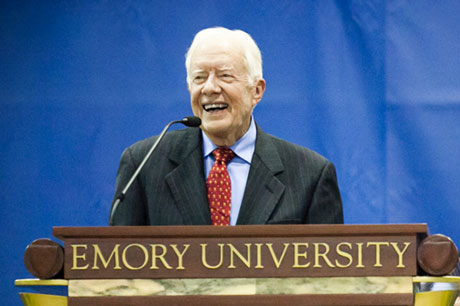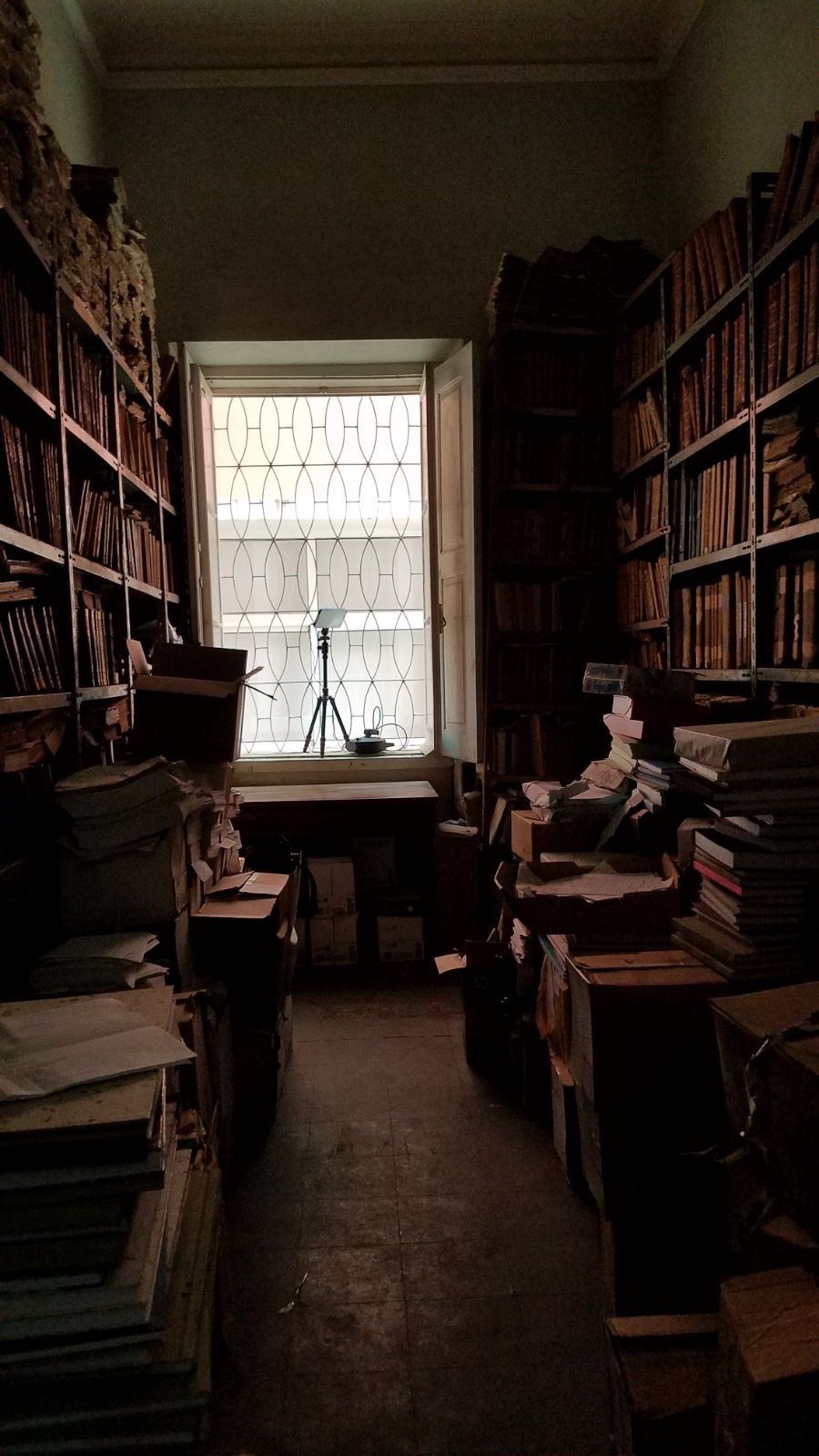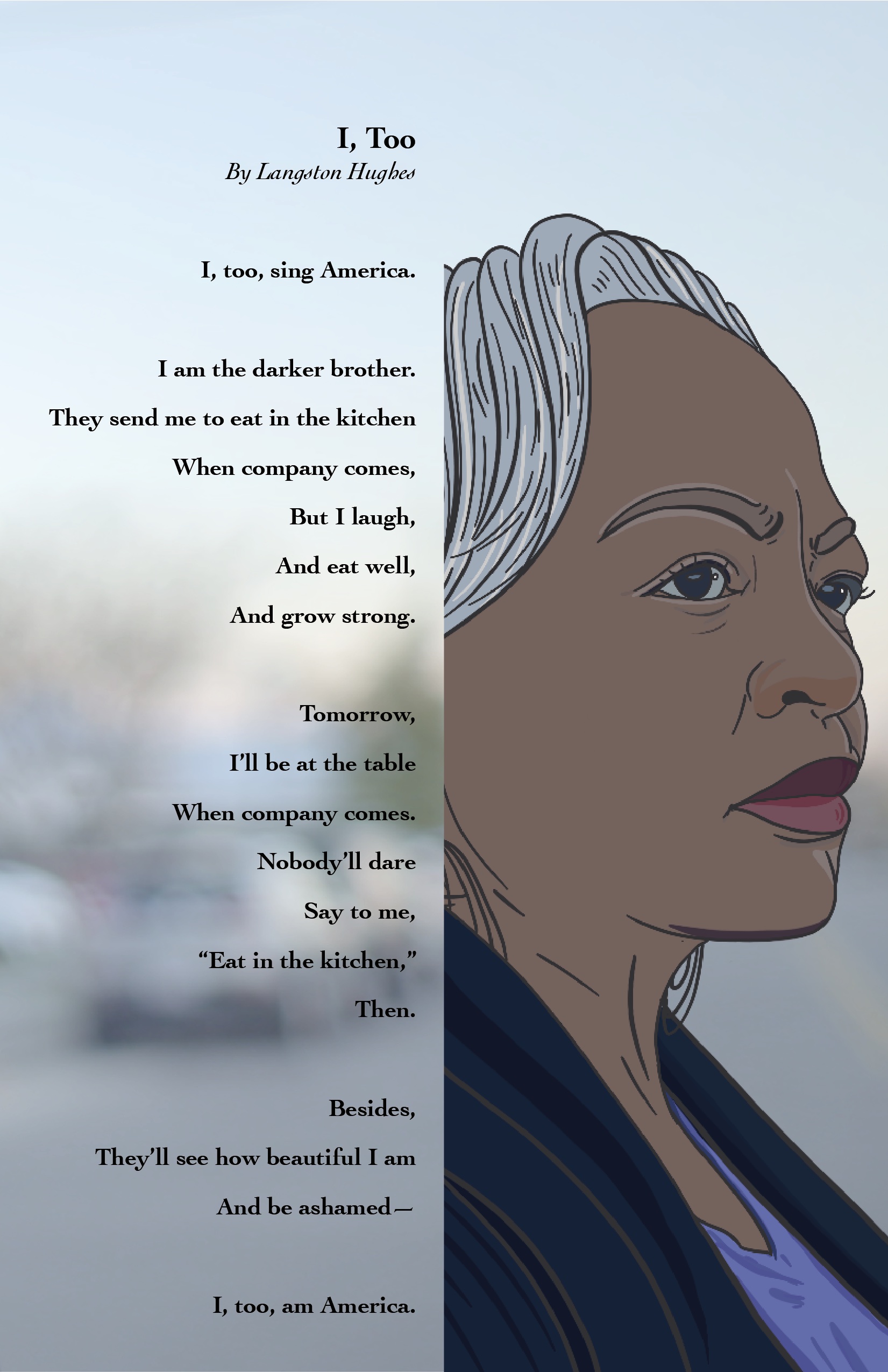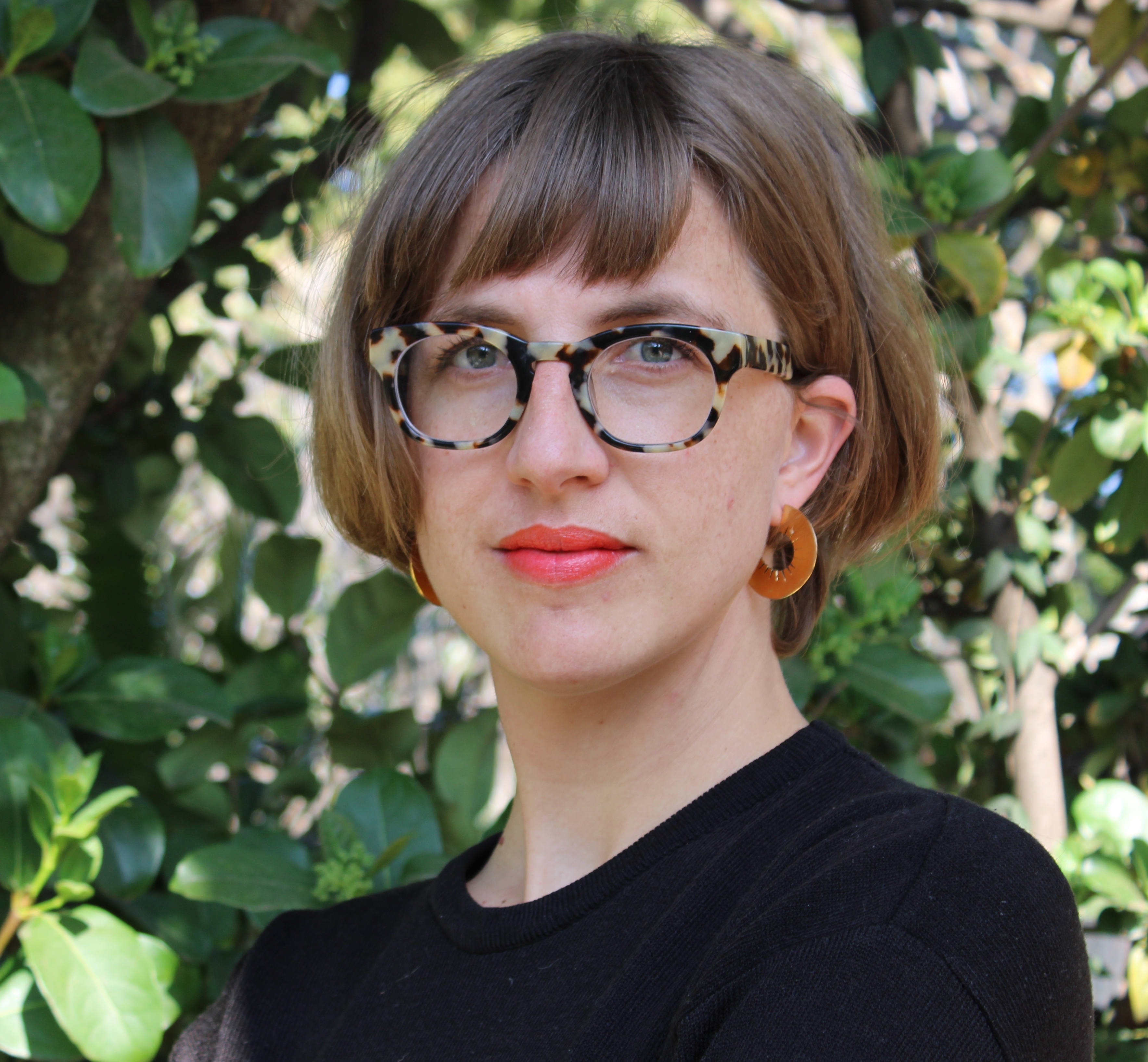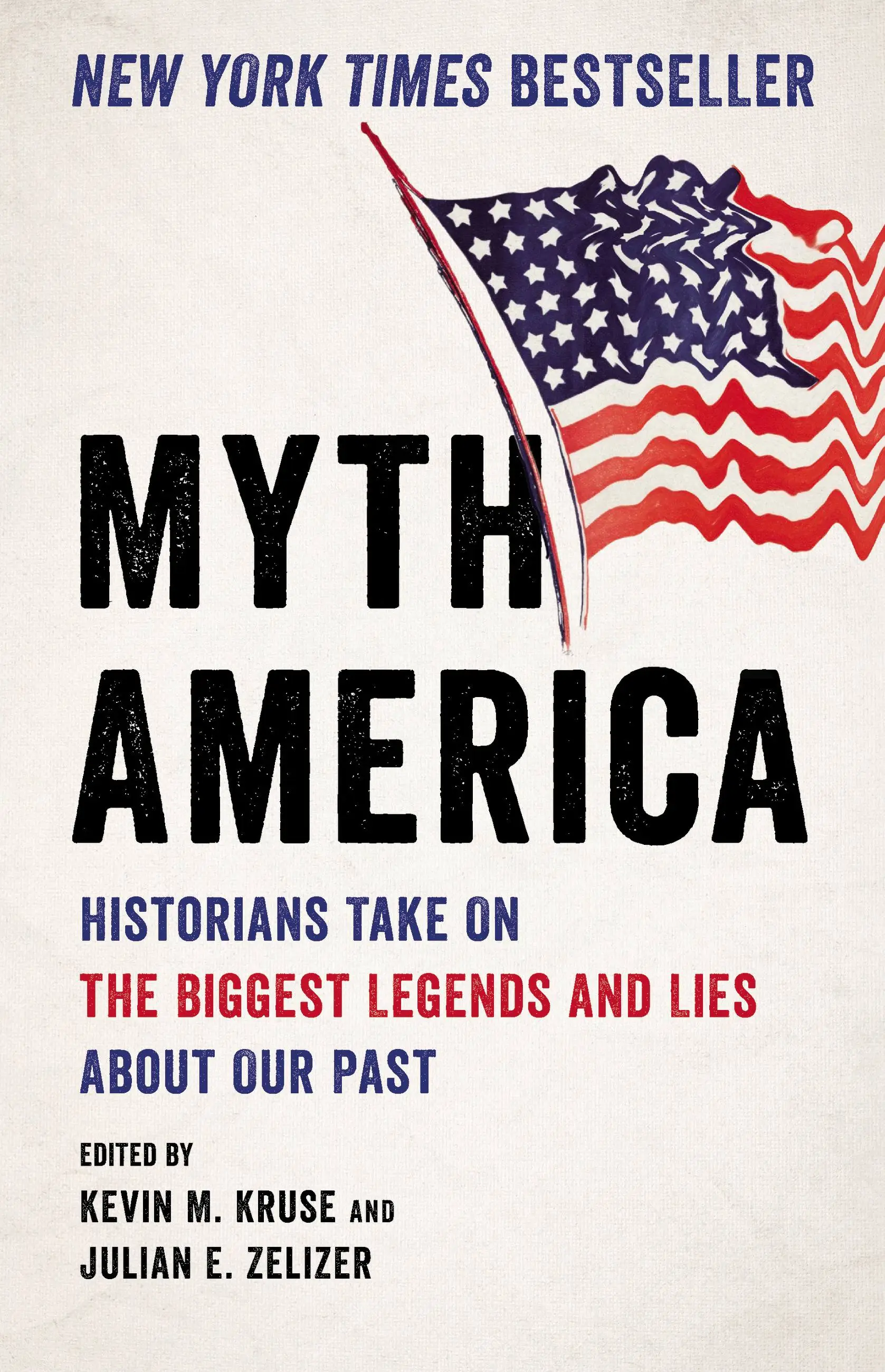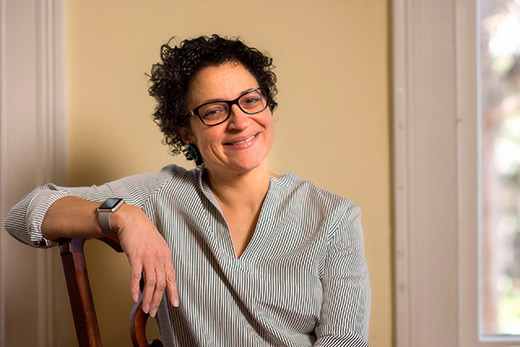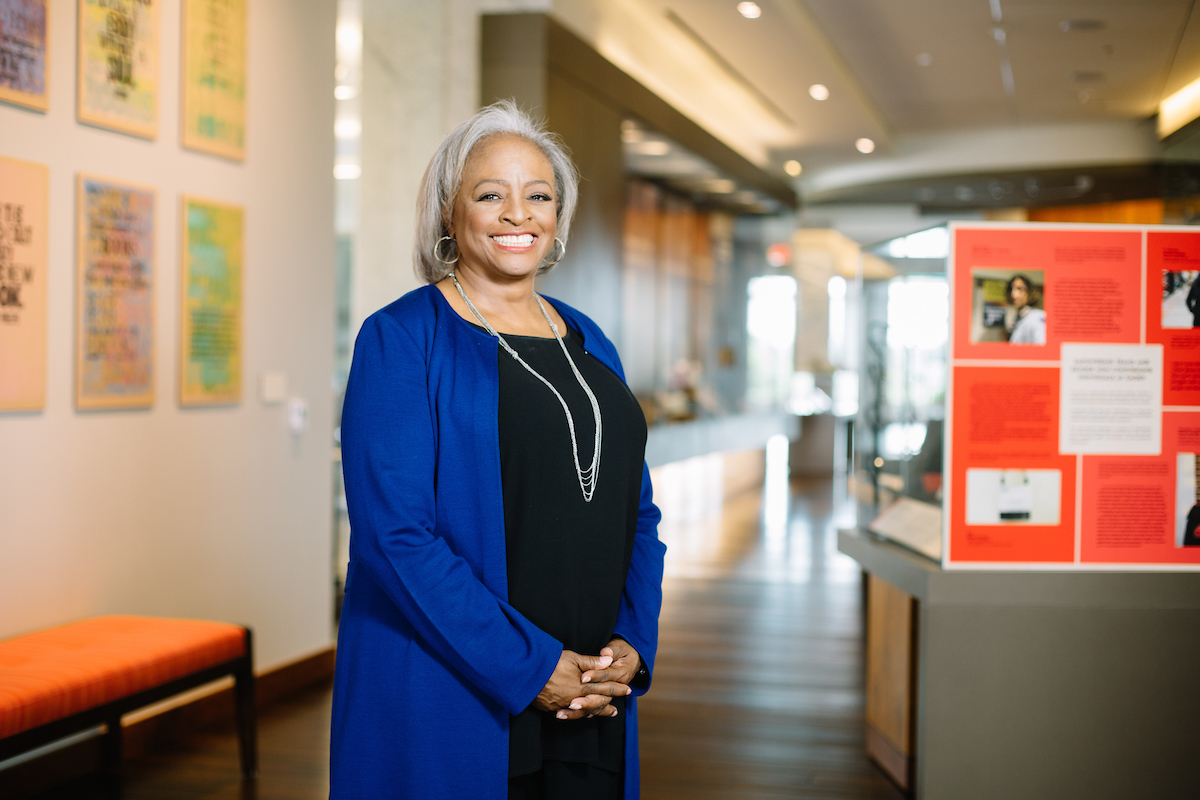In the wake of recent news that former U.S. President Jimmy Carter would forgo further medical treatment and receive hospice care in his home, journalists from Atlanta News First (ANF) visited campus to investigate Carter’s legacy in the Emory community. ANF interviewed Dr. Joseph Crespino, Department Chair and Jimmy Carter Professor of History, about the positive impact that the former president made on generations of Emory students through public lectures, “Carter Town Halls,” and visits to classes that professors like Crespino taught. Crespino said that Carter, who was Distinguished University Professor at Emory, will “be remembered as one of the great Americans of the late 20th and early 21st century.” Watch/read the full story from the ANF: “Emory University professor says President Carter left lasting impression on students.”
Month / February 2023
Candido, Chira, and Dias Paes Collaborate on Provost-Funded Project “Land Dispossession, Inequality, and the Legacies of Slavery in Africa and Latin America”
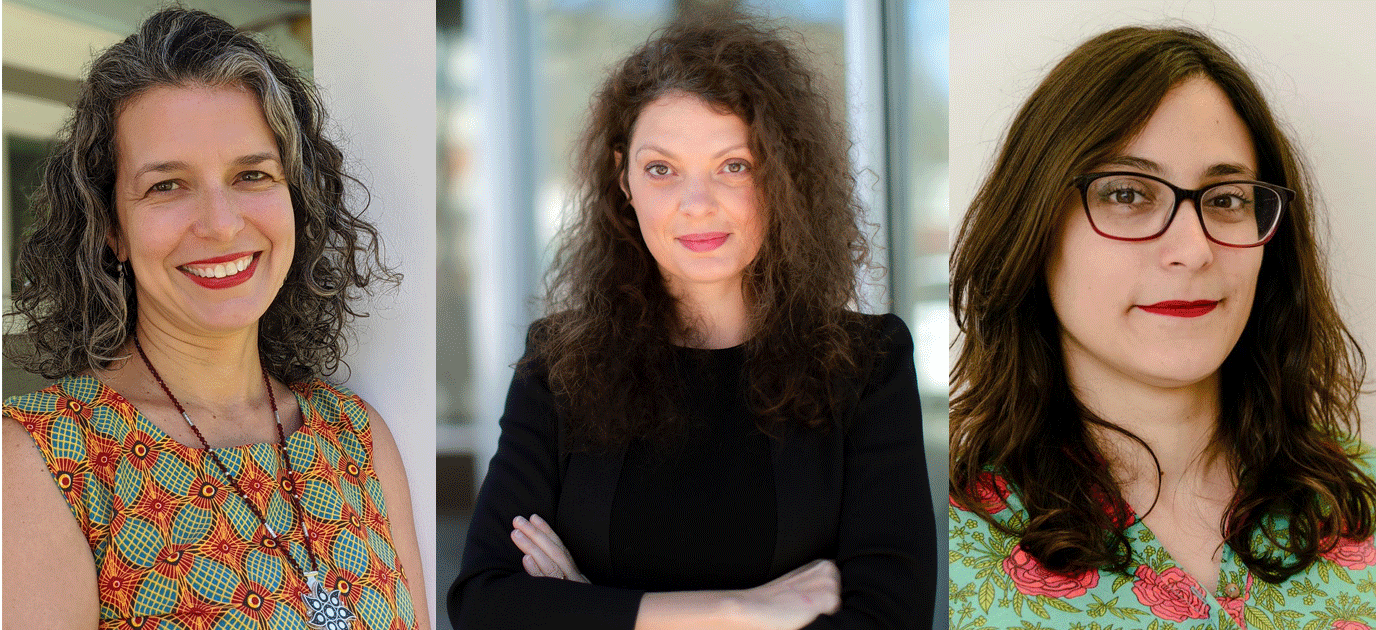
During the fall of 2022, Mariana P. Candido, Adriana Chira, and Mariana Armond Dias Paes of the Max Plank Institute for Legal History received a three-year grant from Emory’s Office of the Provost. Titled “Land Dispossession, Inequality, and the Legacies of Slavery in Africa and Latin America,” the project is one of five that will receive a part of $1.4 million in support. The three historians will use the resources to conduct research, develop a digital platform, and initiate several pedagogical innovations focusing on land politics and sustainability in post-emancipation societies in Africa and Latin America. They will be engaging with primary sources located in endangered archives, including Cuba, Cape Verde, and Angola, while also developing new ways of sharing some of this material through public-facing platforms and new courses at undergraduate and graduate level.
The three project leaders point out that their work emerges from a belief that the humanities, and historical approaches in particular, are fields that are uniquely positioned to offer new ways of thinking about land dispossession, rural inequalities, and environmental sustainability. According to Candido, Chira, and Dias Paes, such approaches allow scholars to examine dispossession in the long term, exploring how present-day expulsion from the land is rooted in socio-economic structures dating back to slavery and colonialism. A humanistic approach to land dispossession also sheds light on alternative modes of community-building and property ownership that emerged from below that more quantitative social scientific approaches have ignored. Dias Paes emphasizes that “much of the legal framework of today´s legal system in what concerns property was created in the nineteenth century. Thus, if we want to reform these legal systems in the sense of shifting the current model of exploitation, we must discuss their roots and de-naturalize legal ideas such as ‘absolute ownership right,’ ‘legal personality,’ and so on.”
At the core of the project is a fundamental commitment to collaboration as a tool for writing and practicing better history. Candido and Chira are extremely excited to develop their collaboration with Mariana Dias Paes (with whom Candido has been working for a few years now), an ambitious visionary thinker in the field of legal history. Dias Paes is a Research Group Leader at the Max Planck Institute for Legal History and Legal Theory (Frankfurt am Main) where she heads the project “Global Legal History on the Ground: Court Cases in African Archives.” In the framework of the project, she has been digitizing over 30,000 court cases stored at the Cape Verde National Archives. Since 2017, together with Mariana Candido and Juelma Ngãla (ISCED-Benguela, Angola), she organized the court cases collection of the Benguela District Court (Angola). Her research focuses on the social and legal history of the South Atlantic (Brazil, Angola, Cape Verde, Guinea Bissau), between the 17th and the 20th centuries. She has published extensively on issues pertaining to judicial disputes over land and labor in English, Portuguese, Spanish, and French. Her publications include: Esclavos y tierras entre posesión y títulos: la construcción social del derecho de propiedad en Brasil, siglo XIX (2021) and Escravidão e direito: o estatuto jurídico dos escravos no Brasil oitocentista, 1860-1888 (2019). She has also published articles in flagship journals such as Law & History Review, Atlantic Studies, Administory-Zeitschrift für Verwaltungsgeschichte. Since 2020, she serves as book review editor of the Journal of Global Slavery. She has been affiliated with international projects funded by the European Commission, the Max Planck Society, and CNPq/Brazil.
Dias Paes began researching the relation between law and slavery while she was in Law School. “It was during my masters, on freedom suits filed by enslaved people in Brazil, that I came to realize that the legal categories structuring these court cases and the legal arguments within them were the same ones used in land disputes. I decided to study this entanglement deeper during my Ph.D., and it became evident that the legal connection between property ownership and land ownership was mutually constitutive with broader economic and social relations. This was such a fascinating topic, that connected historiographical fields that do not often engage with each other, that I decided to pursue this topic further in the following years. For me, it is now clear that the history of slavery and land dispossession in the Global South is the basis of the current climate crisis.”
Asked to explain more about the collaborations that will emerge through the framework of this grant, Dias Paes said the project “will be fundamental to put my own individual research in perspective and access my results in a more complex fashion. When one is doing research individually, time and resources end up restricting the geographical and time scope of our work. Working collaboratively allows us to compare different contexts and thus understand with more complexity local process. Collaboration is fundamental to global and transnational research while allowing us to also conduct meticulous empirical research. Moreover, our project puts together researchers with different backgrounds, historians, and lawyers. This interdisciplinary collaboration will also deepen our debates and analysis. But our collaboration is not restricted to the project. We will also strengthen our partnerships with archival institutions in the Global South. In the age of digital humanities, it is urgent that we put forward debates on digital infrastructure and data sovereignty in Africa and Latin America. Digital humanities projects can both deepen the asymmetries between the Global South and the Global North or it can be an emancipatory tool, that broadens the access of Global South scholars to research infrastructures. Thus, we want our partnerships to be a laboratory on how to do digital humanities in the least asymmetrical way possible. Serious dialogue with our partners will be the key to achieving this goal.”
Learn more about the work of the three project leaders of “Land Dispossession, Inequality, and the Legacies of Slavery in Africa and Latin America” on their faculty pages:
Anderson Cited in ‘The Hill’ Piece on Voter Suppression
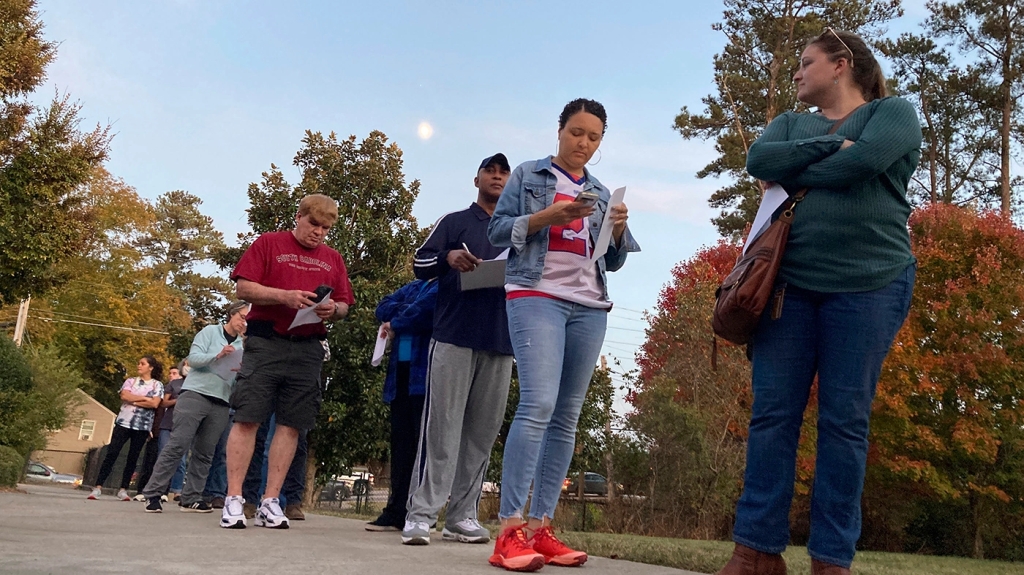
Dr. Carol Anderson was recently cited in an article written for The Hill and titled “GOP voter suppression measures are working, despite Democratic wins.” Written by veteran journalist Al Hunt, the op-ed discusses how Republican-led efforts to restrict voting access in recent years appear to be decreasing the number of votes cast, especially in states like Georgia and among Black and Hispanic voters. Hunt references Anderson’s chapter on voter fraud in the newly-released collection of essays Myth America: Historians Take On the Biggest Legends and Lies About Our Past (Basic Books, 2023). Read an excerpt from Hunt’s article below, along with the full piece.
Whether Georgia or elsewhere, the stated rationale is to “prevent fraud” — it’s just that when pressed, they can’t produce any. Ben Ginsburg, who for decades prior to Trump was the most prominent Republican election lawyer in America, suggests voting fraud is the “the Loch Ness Monster of the Republican party … People spend lots of time looking for it, but it doesn’t exist.”
This isn’t a new phenomenon. The 15th Amendment prohibited discrimination in the right to vote on the basis of race. After Reconstruction, southern segregationists found a new tact, writes Emory University historian Carol Anderson, in a chapter in a fascinating new book, “Myth America.”
Anderson writes: “The operatives and politicians camouflaged their discriminatory intent behind the charge of voter fraud to create the illusion that their primary concern was election integrity and democracy.”
Sound familiar?
“Carol Anderson’s journey to become a documentary filmmaker”
The Emory News Center recently published a Q&A with Dr. Carol Anderson about her experience creating the documentary film, “I, too.” Inspired by Langston Hughes’s poem of the same name, Anderson’s film engages with struggles for citizenship and democracy in America through three pivotal moments of racial and political violence: the Hamburg Massacre of 1876, the Wilmington Coup of 1898, and Ocoee Massacre of 1920. These historical events provide illuminating context for the insurrection at the U.S. Capitol on January 6, 2021 and its role in the history and future of American democracy. Anderson’s film premiered last fall at the Carter Center in Atlanta and has since been screened at Brandeis University and the Athens Democracy Forum in Greece. Read a quote from the Q&A with Dr. Anderson below, along with the full piece by the Emory News Center’s Susan M. Carini here: “‘I, too, am America’: Carol Anderson’s journey to become a documentary filmmaker.”
What is the genesis for “I, Too”?
The film is about patriotism and who is fighting for democracy. The folks who stormed the Capitol on Jan. 6, 2021 had a very narrow vision of democracy. They were trying to wipe out 81 million votes.
All the talk of the election being “stolen” centered on Atlanta, Milwaukee, Philadelphia and Detroit — cities with sizable Black populations. Those with that mindset were intentionally linking theft and criminality with urban areas. When I think about the Black citizens of this country, I see a group of people who have always fought for American democracy, even when it has not fought for them. So, my hope was to shine an honest light on this battle about American citizenship and democracy.
Doctoral Student Anjuli Webster Receives Dissertation Fellowship from the American Society for Environmental History
The graduate research fellowships committee of the American Society for Environmental History has awarded doctoral candidate Anjuli Webster their 2023 Hal Rothman Dissertation Fellowship. Named in honor of Hal Rothman, recipient of ASEH’s 2006 Distinguished Service award and editor of Environmental History for many years, the fellowship carries an award of $1,000. The prize will help to support research for Webster’s dissertation, titled “Fluid Empires: Histories of Environment and Sovereignty in southern Africa, 1750-1900” and advised by Drs. Clifton Crais, Mariana P. Candido, Yanna Yannakakis, and Thomas D. Rogers.
‘New York Times’ Reviews New Collection with Contribution from Anderson
Carlos Lozada, the nonfiction book critic for The New York Times, recently published a review of Myth America: Historians Take On the Biggest Legends and Lies About Our Past (Basic Books, 2023). Co-edited by Kevin M. Kruse and Julian E. Zelizer, the collection features a contribution from Dr. Carol Anderson, Charles Howard Candler Professor of African American Studies and Associated Faculty in the History Department. Anderson’s chapter debunks myths about the prevalence of voter fraud in U.S. elections and illustrates how such discourses have served to exclude and disenfranchise voters. Read an excerpt of the review below, along with the full article here: “I Looked Behind the Curtain of American History, and This Is What I Found.”
Several contributors to “Myth America” successfully eviscerate tired assumptions about their subjects. Carol Anderson of Emory University discredits the persistent notion of extensive voter fraud in U.S. elections, showing how the politicians and activists who claim to defend election integrity are often seeking to exclude some voters from the democratic process. Daniel Immerwahr of Northwestern University puts the lie to the idea that the United States historically has lacked imperial ambitions; with its territories and tribal nations and foreign bases, he contends, the country is very much an empire today and has been so from the start. And after reading Lawrence B. Glickman’s essay on “White Backlash,” I will be careful of writing that a civil-rights protest or movement sparked or fomented or provoked a white backlash, as if such a response is instinctive and unavoidable. “Backlashers are rarely treated as agents of history, the people who participate in them seen as bit players rather than catalysts of the story, reactors rather than actors,” Glickman, a historian at Cornell, writes. Sometimes the best myth-busting is the kind that makes you want to rewrite old sentences.
Mellon Foundation Awards $2.4 million for Unique Partnership between Emory and College of the Muscogee Nation (CMN); Malinda Maynor Lowery to Co-Lead Initiatve
The Andrew W. Mellon Foundation has awarded $2.4 million in support of a unique partnership between Emory University and the College of the Muscogee Nation (CMN) centered on Native and Indigenous Studies as well as the preservation of the Mvskoke language. The funding will support collaborative learning communities and research opportunities that link the campuses of Emory and the CMN. Dr. Malinda Maynor Lowery, Cahoon Family Professor of American History, helped to forge the partnership between the two institutions, including as part of the the Indigenous Language Path Working Group convened following the reappointment and expansion of President Fenves’ Task Force on Untold Stories and Disenfranchised Populations. Read more about the partnership between Emory and the CMN and the Mellon Foundation award:
- “Mellon Foundation awards Emory $2.4 million to advance Indigenous studies and knowledge with the Muscogee Nation.” (Emory News Center)
- “Emory University and College of the Muscogee Nation Receive $2.4 Million to Support Native and Indigenous Studies” (Diverse Issues in Higher Education)
- “Black and Native: embracing the intersection of the two cultures” (Atlanta Journal-Constitution)
- “Emory to partner with Muscogee college to advance indigenous language” (Georgia Public Broadcasting)
Billups Publishes Business History of Koinonia Farm in the ‘Journal of Southern History’
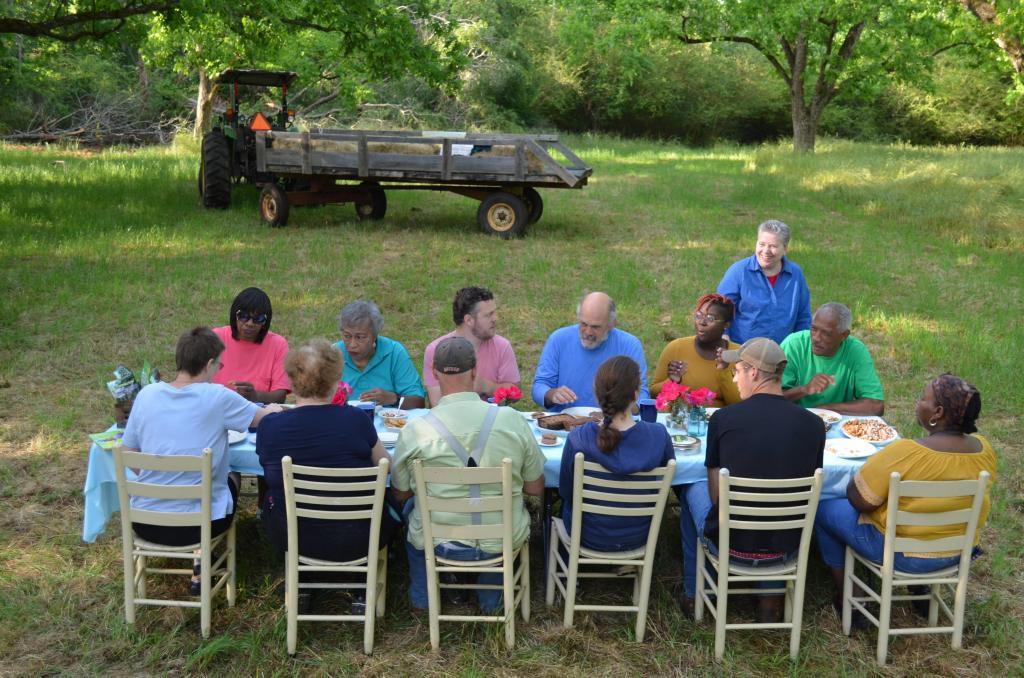
Doctoral candidate Robert Billups published an article in the Journal of Southern History, titled “The Cost of Civil Rights: White Supremacist Violence and Economic Resistance against Koinonia Farm during the Civil Rights Era.” The piece offers a unique look at Koinonia Farm, a Christian agricultural community founded in the post-WWII era in southwestern Georgia. By the mid-1950s, Koinonia Farm had grown into a large, self-sustaining interracial commune and commercial farm. Whereas most studies have emphasized the place’s religious and cultural life, Billups’s article offers a deep dive into the financial history of Koinonia, particularly how the farm survived a business climate hostile to its antiracist, pro-Civil Rights positions. Billups is completing his dissertation, “‘Reign of Terror’: Anti–Civil Rights Terrorism in the United States, 1955–1971,” under the advisement of Drs. Joseph Crespino and Allen Tullos.
Anderson Interviewed by ‘Washington Post’ about Contribution to New Book, ‘Myth America’
Dr. Carol Anderson was recently interviewed by Washington Post senior writer Frances Stead Sellers about her contribution to the book Myth America: Historians Take On the Biggest Legends and Lies About Our Past (Basic Books, 2023). Edited by Kevin M. Kruse and Julian E. Zelizer, the book aims to upend misinformed myths about American history that the editors see as taking strong root in contemporary popular discourse. Anderson’s chapter, “Voter Fraud,” addresses how misinformation about the frequency and threat of voter fraud have fueled practices of racialized voter suppression. Watch Anderson in conversation with Francis Stead Sellers here and read a excerpt from the transcript of their interview below. Anderson is Charles Howard Candler Professor of African American Studies and Associated Faculty in the History Department.
MS. STEAD SELLERS: Professor Anderson, you similarly give great historical context to voter suppression, talking particularly about 19th century Mississippi, but can you tell me whether you feel today is different, or are we reliving what you have observed and documented earlier on in U.S. history?
DR. ANDERSON: I’m going to say apocryphally, Mark Twain said history may not repeat itself, but it sure do rhyme. And we are in the rhythms right now. We are rhyming. And so part of what Mississippi did in 1890 was to say, oh, we don’t want Black folks to vote, but because of the 15th Amendment that says that the state shall not abridge the right to vote on account of race, color, or previous condition of servitude, then how do we write a law saying we don’t want Black folks to vote without writing a law saying we don’t want Black folks to vote? And Mississippi said, “Got it. What we’re going to use is to use the legacies of slavery and make those legacies of slavery, like poverty and illiteracy, the access to the ballot box. And so you get a poll tax, and you get a literacy test, and you get a Supreme Court that blessed both of those policies on high, and that led to this massive disfranchisement of Black folks that you saw in the South with the poll tax and the literacy test.
Now you think about what happened in the U.S. after Shelby County v. Holder, whereas the U.S. Supreme Court in 2013 gutted the Voting Rights Act, the pre-clearance provision of the Voting Rights Act, and you had these states implement these policies that on its surface looked race neutral, like voter ID. But in fact, they were racially targeted.
These state legislatures went through, and they looked at, by race, who had what types of government-issued photo IDs and then made the ones that Whites had the primary access to the ballot box.
In Alabama, for instance, they said you must have government-issued photo ID, but your public housing ID does not count for access to the ballot box. Now that looks like race neutral, except 71 percent of those who had public housing IDs in Alabama were African American, and the NAACP Legal Defense Fund found that for many, it was the only government-issued photo ID that they had.
And also note that what they used, just like Mississippi in 1890, was the language of “cleaning up” the ballot box, “ending corruption” at the ballot box. We must have “election integrity,” except just like in Mississippi in 1890, there wasn’t the kind of individual voter fraud that could change an election that we’re seeing, that we were seeing back then.
Crespino Interviewed for Atlanta History Center’s New Film “Monument: The Untold Story of Stone Mountain”
Dr. Joseph Crespino, Department Chair and Jimmy Carter Professor of History, was interviewed for the Atlanta History Center’s first-ever original documentary, “Monument: The Untold Story of Stone Mountain.” The film provides a window into the making of the largest monument to the Confederacy in the world, including aspects of its history that are often glossed over. The Atlanta Journal Constitution recently published an article about “Monument,” in which they cite one of Crespino’s comments from the film. Read a quote below from the AJC piece below along with the full article: “Atlanta History Center’s first documentary takes on Stone Mountain.” Also view the documentary itself on the Atlanta History Center site: “Monument: The Untold Story of Stone Mountain“
“It was finished in 1972, more than a century after the end of the Civil War.
“The park, Emory University historian Joseph Crespino says in the film, is ‘a place that memorializes people who fought for a version of the country that we reject today.’
“‘A lot of people just don’t even know,’ Cynthia Spence, co-chair of anthropology and sociology at Spelman College, says. ‘They’d don’t understand that Stone Mountain, as well as many Confederate monuments all over this country, were very intentionally placed to keep Black people in their places.'”
